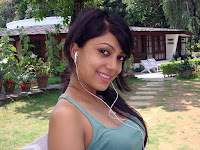It's been almost a year since I've written on this blog! Maybe it is that I've been having so much fun with life that blogging took a back seat. That isn't to say life is in the doldrums this fine Friday, but that some thoughts floating in my head are best bashed out on a blog and forgotten then on.
There are some days when you wake up on the wrong side of the bed. In the past few hours, I am pretty sure that waking up to the right hand side of mine, was an error in judgement. Nothing really catastrophic but more or less an emotional day on many levels. They say that when one thing goes wrong then the rest will to. So this morning, I suppose brushing my teeth for the morning with my night time tooth brush was where I went wrong.
Essentially it was a day of miscommunication in plenty, magnified by the fact that thanks to technology, many things that are as normal as the sun rising in the east, are considered abnormal. And they say technology makes life easier! Poooeeey. Later in the day, I was also regaled with comments about my character. Not bad ones, just ones that I don't hear often. Maybe it is time for a re-assessment; maybe it's time to take a step back and observe. Perhaps I am too caught up in looking into the future, that I forget I have no control over it. But as I said, time to observe. Besides, thankfully, life has been kind enough to hand me people who love and care for me. Even if it mean telling the harsh truth sometimes. I am fortunate enough to have people who care enough to tell me things that maybe I don't want to hear. And life certainly is kind enough to bring me pizzas and chips, to make sure my worries and troubles melt like cheese.
There are some days when you wake up on the wrong side of the bed. In the past few hours, I am pretty sure that waking up to the right hand side of mine, was an error in judgement. Nothing really catastrophic but more or less an emotional day on many levels. They say that when one thing goes wrong then the rest will to. So this morning, I suppose brushing my teeth for the morning with my night time tooth brush was where I went wrong.
Essentially it was a day of miscommunication in plenty, magnified by the fact that thanks to technology, many things that are as normal as the sun rising in the east, are considered abnormal. And they say technology makes life easier! Poooeeey. Later in the day, I was also regaled with comments about my character. Not bad ones, just ones that I don't hear often. Maybe it is time for a re-assessment; maybe it's time to take a step back and observe. Perhaps I am too caught up in looking into the future, that I forget I have no control over it. But as I said, time to observe. Besides, thankfully, life has been kind enough to hand me people who love and care for me. Even if it mean telling the harsh truth sometimes. I am fortunate enough to have people who care enough to tell me things that maybe I don't want to hear. And life certainly is kind enough to bring me pizzas and chips, to make sure my worries and troubles melt like cheese.




